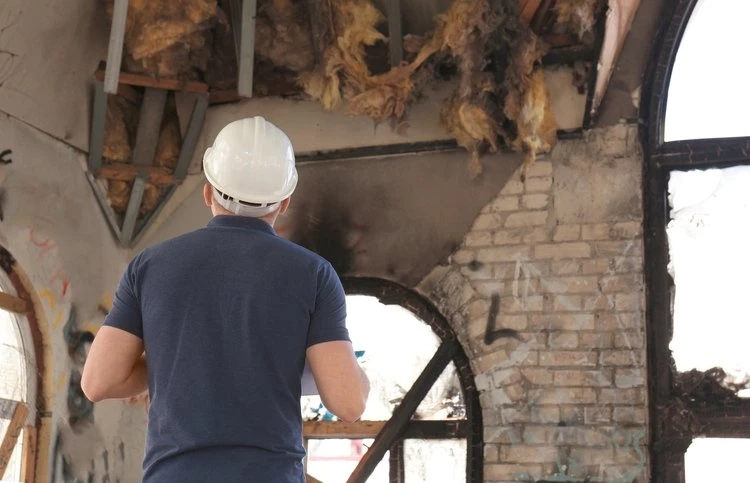A storm can turn your world upside down in minutes. Heavy winds, rain, and debris can leave your home or business damaged. If you’re dealing with a roof leak, broken windows, or structural issues, you might feel overwhelmed. The good news is that your insurance policy is there to help. However, the process of filing a claim can be tricky. Understanding how to navigate your insurance claim correctly can save you time, stress, and money.
If you're unsure how to start, this guide will walk you through each step. From assessing the damage to working with a property damage claims adjuster, we cover it all to help you get the compensation you deserve.
Assess the Damage Immediately
Before doing anything else, check your property for damage. Walk around and take note of any issues. Look for missing roof shingles, broken glass, water leaks, or structural damage. Even small issues can turn into bigger problems if left unattended.
Important Steps to Take:
- Take Photos and Videos – Capture every part of the damage. This helps prove your claim.
- List the Damaged Items – Make a list of furniture, electronics, or other belongings that were affected.
- Check for Safety Hazards – If there are exposed wires, gas leaks, or unstable structures, avoid the area.
By collecting strong evidence, you make it easier for your insurance company to process the claim.
Contact Your Insurance Provider
Once you have gathered evidence, call your insurance company. Let them know about the damage and ask how to proceed. Each insurance provider has different rules, so it’s important to follow their instructions carefully.
What to Ask Your Insurer:
- What is covered under my policy?
- What is my deductible for storm damage?
- How long will it take to process my claim?
- Do I need to get repair estimates?
Having these answers will give you a clear understanding of what to expect during the claims process.
Work With a Public Adjuster
Insurance companies often send their own adjusters to evaluate the damage. However, hiring a property damage claims adjuster who works for you can make a big difference. A public adjuster ensures you get a fair settlement by:
- Conducting an independent inspection of the damage.
- Reviewing your policy to maximize your claim.
- Negotiating directly with your insurance company on your behalf.
This step is crucial if you feel the insurance company's estimate is too low.
Prevent Further Damage
Your insurance policy likely requires you to prevent additional damage. This means you should make temporary repairs to stop the problem from worsening. However, do not start major repairs until the claim is approved.
Temporary Fixes to Consider:
- Cover broken windows with plastic or plywood.
- Use tarps to protect exposed areas of the roof.
- Remove standing water to prevent mold growth.
Keep all receipts for repair materials, as your insurance company may reimburse you.
Get Repair Estimates
Before hiring a contractor, get multiple estimates for repairs. This ensures you don’t overpay and gives you leverage if the insurance company offers a low payout.
Tips for Hiring a Contractor:
- Choose a licensed and insured professional.
- Get everything in writing, including costs and timelines.
- Avoid contractors who demand full payment upfront.
A reputable contractor will work with you and your insurance provider to restore your property.
Keep Detailed Records
Throughout the claims process, keep a file with all relevant information. This includes:
- Insurance policy details.
- Photos and videos of damage.
- Emails and letters from your insurance provider.
- Receipts for repairs and living expenses (if you had to move out temporarily).
Having everything documented will protect you in case of a dispute.
What to Do If Your Claim Is Denied
Sometimes, insurance companies deny claims or offer less than expected. If this happens, don’t panic. You have options.
Steps to Take:
- Request a Written Explanation – Your insurer must provide a reason for denial.
- Review Your Policy – Ensure the damage is not excluded from coverage.
- Dispute the Decision – Provide additional evidence or hire a damage claims adjuster to negotiate on your behalf.
- Seek Legal Help – If all else fails, a lawyer specializing in insurance claims can guide you.
Get the Support You Need
Navigating an insurance claim after storm damage can feel like a battle. But with the right approach, you can secure a fair payout. By assessing the damage, working with a property damage claims adjuster, and keeping strong records, you can make the process smoother.
If you need expert help, EB Adjusting is here to support you. With years of experience in handling storm damage claims, our team fights for your best interests. Contact us today to ensure you get the compensation you deserve.


